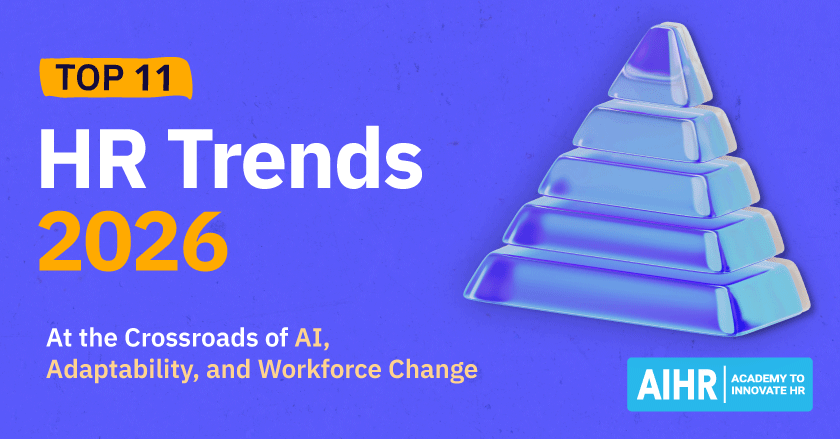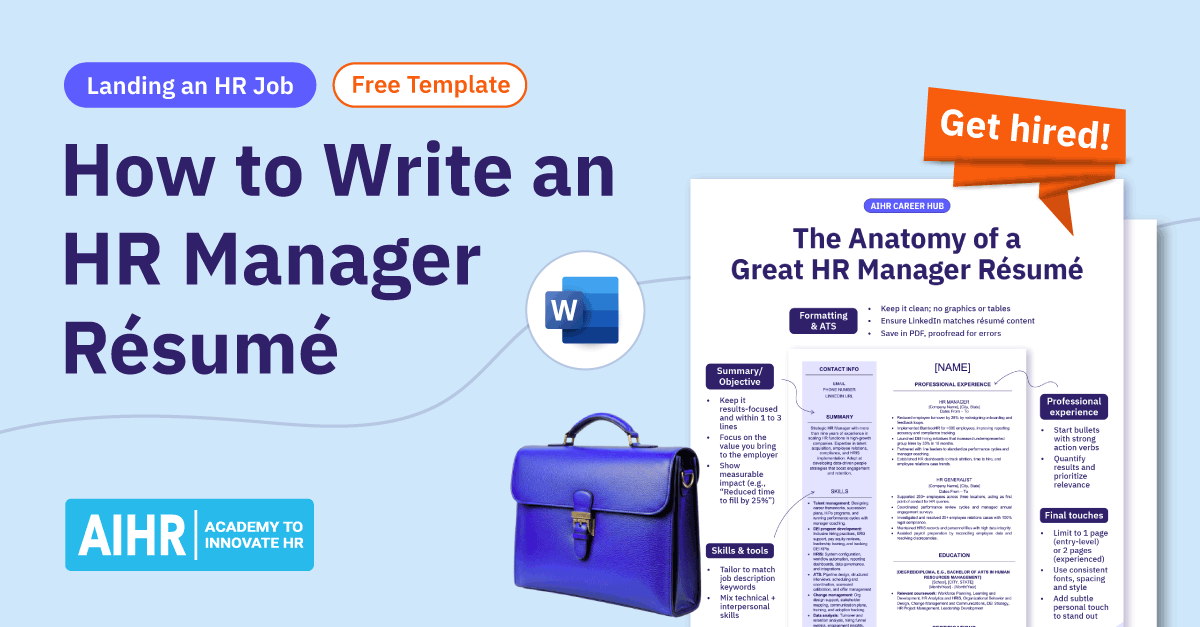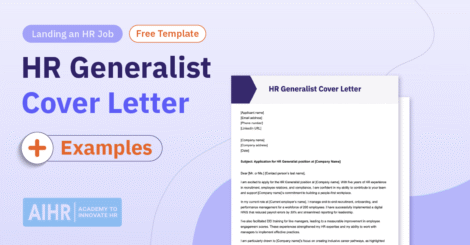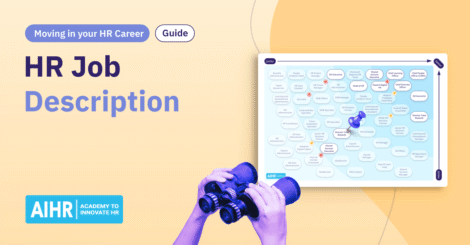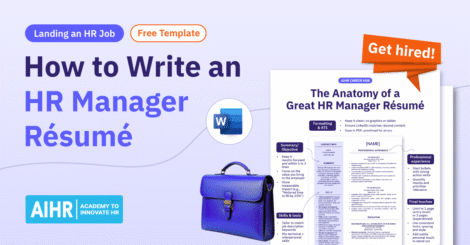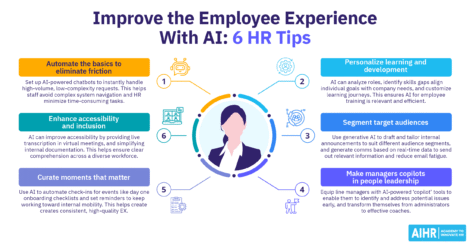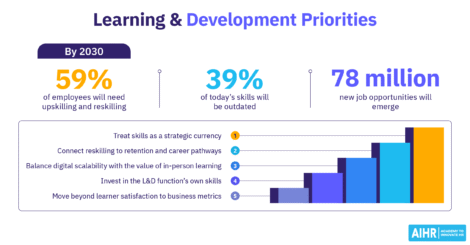If you’re building or updating your HR Manager résumé, you must highlight what truly matters — this includes strategic value, leadership capacity, and impact metrics. Putting this information front and center on your résumé raises your chances of catching a prospective employer’s eye by helping you stand out from the crowd.
This article looks at what an HR Manager résumé should contain, how to structure your own based on your career goals and level of experience, and how to tailor it to suit the different roles and organizations you may apply to. It also comes with free samples, as well as a free template you can download and customize to fit your personal preferences.
Contents
The HR Manager role
How to write an HR Manager résumé
Free HR Manager résumé template
3 HR Manager résumé examples
Key takeaways
- A good HR Manager résumé should show strategic value by focusing on how the applicant’s HR work supports business goals, not just daily tasks.
- Candidates should quantify results by using metrics to prove their impact on hiring, retention, or compliance.
- Tailoring a résumé to suit each role, as well as the company’s size, industry, and language, can help you stand out.
- Emphasize credibility — list certifications, HR systems, and key tools that demonstrate expertise and readiness.
The HR Manager role
The HR Manager leads the people function and turns business goals into practical HR plans. They partner with leaders, coach managers, and keep daily HR operations (i.e., hiring, performance, pay, development, engagement, and retention) running. They use data to spot risks and opportunities, keep policies fair and compliant, and manage HR systems and vendors.
On a day-to-day basis, they balance strategy and execution, standardizing processes, resolving employee issues, and leading change like HRIS rollouts or restructures. Success in this role requires both technical and leadership skills. The goal is simple — deliver measurable results, influence cross-functional teams, and handle sensitive issues with empathy and integrity.
The future of the HR Manager role
HR is shifting from policy and process to products and outcomes, meaning HR Managers are expected to be strategists and product owners for the employee experience. They will use data, automation, and skills-based planning to drive growth, reduce risk, and improve productivity.
In practice, this means AI-enabled operations with strong guardrails, people analytics as a core capability, and skills-first strategic workforce planning. HR Managers will enable leaders with simple playbooks, lead change with clear narratives and phased execution, and embed compliance into workflows. They’ll also standardize and localize where needed, and keep practices fair across hybrid and global teams.
To stay ahead, it’s essential to upskill in HR analytics, AI literacy, and product thinking, and deepen fluency in HRIS/ATS integrations. This means partnering early with Finance, Legal, and IT, and maintaining a monthly people scorecard. You’ll also need to pilot, measure, and scale programs like products with clear HR KPIs and ownership.
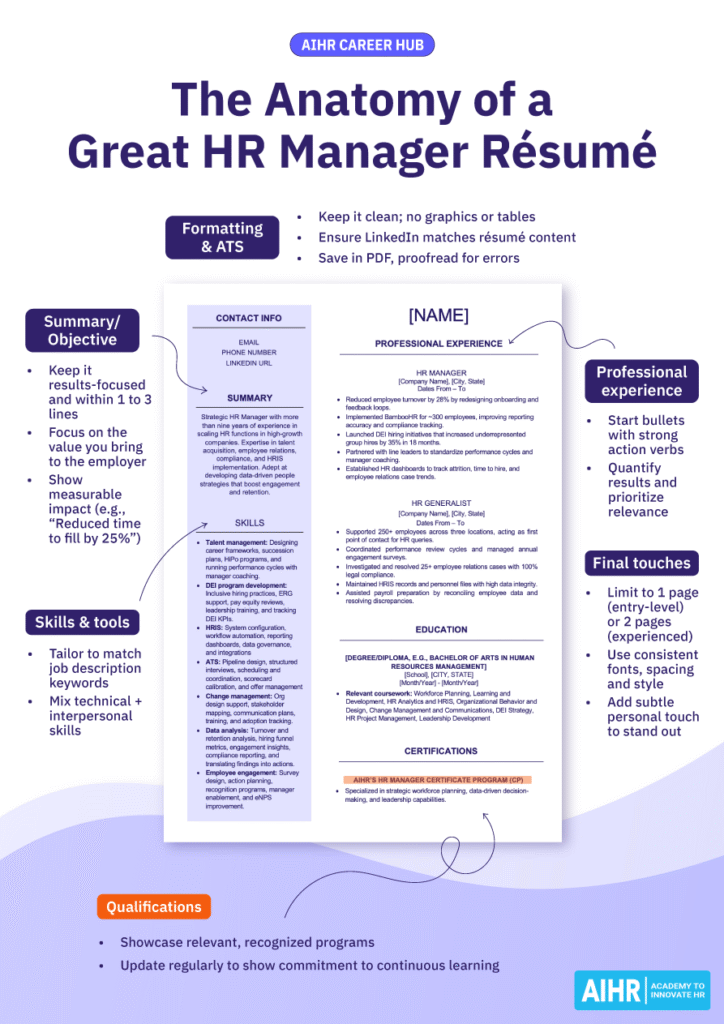
How to write an HR Manager résumé
Your résumé should read like a confident handshake: clear positioning at the top, targeted achievements in the middle, and proof of tools, training and impact at the end. Keep it focused on business outcomes — such as retention, cost, time, or risk — not just HR activities.
Start with a sharp summary statement
Your summary sits at the top of your résumé and should give Hiring Managers a clear, concise snapshot of who you are as a professional. It’s your introduction and opportunity to ‘hook’ the reader (usually either a Recruiter, Hiring Manager, or both).
Do this
- Keep it to three to four lines long
- State your years of experience and the relevant context (industry, stage, or regions)
- Name your focus areas (e.g., talent strategy, employee relations, or rewards)
- Add one or two metrics that show scale and impact.
Summary statement examples
- “Strategic HR manager with 12+ years improving HR ops in multi-site, regulated environments. Implemented Workday, cut time to hire by 30%, reduced turnover by 24%, saved $500k via vendor consolidation, and maintained zero audit findings.”
- “Execution-focused HR Manager (three years’ experience) with strong HRIS/ATS skills and process improvement experience. Cut time to hire by 20%, raised review completion to 98%, and improved data accuracy to 99% while supporting multi-site teams.”
Tailor your résumé to match the role
While there are basic requirements for every HR Manager role, no two positions are exactly the same. Tailor your résumé to match each job description by pinpointing your relevant experience, skills and qualifications (e.g., experience in similarly sized companies). You should also mirror the language, including key phrases related to the company’s tech stack, initiatives and culture.
Highlight key HR skills
HR is a diverse field. Hiring Managers want to see a well-rounded skill set but more importantly, they want to see that you understand how to apply those skills strategically.
Relevant hard skills
- HRIS and ATS (Workday, SAP SuccessFactors, BambooHR, Greenhouse, Lever)
- People analytics
- Talent acquisition, sourcing strategies, interview design, and offer management
- Performance and rewards management
- Compliance risk (FLSA, ADA, EEO, OSHA, GDPR) — HR audits, investigations, and documentation
- Workforce and succession planning, capacity modeling, and skills mapping
- HR change management
- HR operations (employee onboarding/offboarding, HR SOPs, employee benefits administration, and payroll inputs)
- Project management.
Relevant soft skills
- Business partnering
- Communication
- Coaching
- Stakeholder management
- Data-driven decision making
- Confidentiality and integrity
- Resilience.
Show professional impact with metrics
Data can help you land interviews. Quantify as many aspects of your work experience as you can — adding HR metrics demonstrates how you’ve added value and delivered results at your previous and current companies. Below are some examples of how you can use such metrics on your résumé:
- Reduced average time to fill from 45 to 28 days
- Improved engagement scores by 22% through revamped employee recognition programs
- Led HR compliance audit with zero findings across three business units.
Include education and certifications
List your highest relevant degree first (e.g., BA/B.S. in Human Resources Management, Business Administration, or Psychology). Then, add select coursework that strengthens your case, such as employment law, compensation, HR analytics/HRIS, workforce planning, and change management.
Follow with current, role-aligned certifications, like SHRM-CP/SHRM-SCP, PHR/SPHR, or AIHR certifications, such as HR Manager, Digital HR 2.0, or People Analytics. Also include any specialty training in DEI, investigations, mediation, or change management.
If you hold platform credentials (e.g., Workday, SAP SuccessFactors, BambooHR), include them, especially if the job description names those systems. Keep this section concise and focused on credentials that signal credibility, compliance readiness, and data-driven practice.
Master HR management to boost your HR career
To become a highly skilled, sought-after HR Manager, you must master HR operations and employment law, build HRIS fluency, lead change, design scalable processes, and align people plans with business goals.
✅ Align HR strategies with business goals and contribute to the bottom line
✅ Become a culture champion, drive change, get buy-in, and build trust
✅ Better understand business, organizational design and HR operating models
✅ Gain the skills that will help cement your position as an influential HR Manager
🎓 Future-proof your HR career with a flexible, online HR Manager Certificate Program.
Include an HR Manager résumé objective
A résumé objective is a brief introduction that highlights your leadership focus, core HR skills, and how they match the role. It states your career direction and the value you plan to deliver. If you’re moving into management, shifting industries, or returning to work, use it to explain the transition and connect past experience to HR Manager responsibilities.
This section is optional but if you include it, keep it to two to three lines and name the outcomes you drive (e.g., quality of hire, employee retention rate, compliance, cost, and time) plus key systems or methods you use. Align your objective with the job post and the company’s priorities.
For example: “People-focused HR professional stepping into management and using HRIS expertise, ER case resolution, and data-driven workforce planning to improve retention, reduce risk, and scale operations for a multi-site team.
Free HR Manager résumé template
AIHR has created a free, customizable HR Manager résumé template designed to help you land your next interview. Whether you’re moving into management or leveling up your current role, this template will guide you in showcasing your experience and strengths.
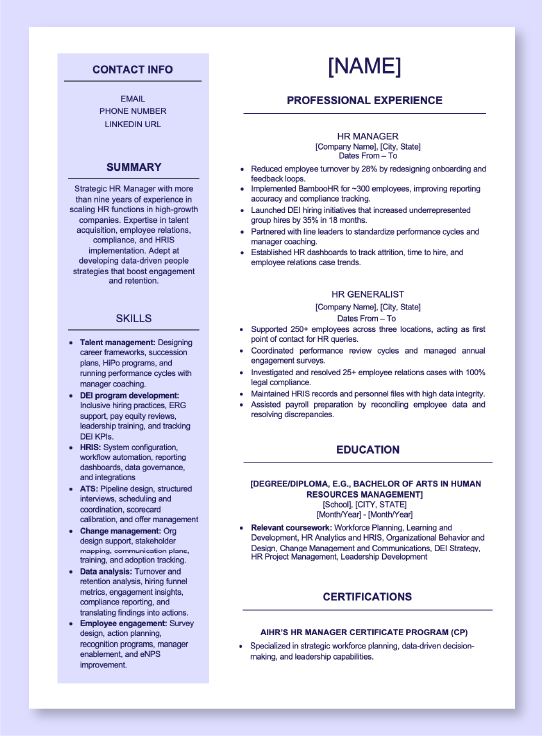
3 HR Manager résumé examples
Here are three examples of different types of HR Manager résumés, each representing a different aspect or experience level of HR management:
Example 1: First-time HR Manager
Example 2: HR Operations Manager
Example 3: Experienced HR Manager
To sum up
A strong HR Manager résumé shows strategy, leadership and measurable results, clearly communicating how you’ve driven business outcomes, and proving you understand HR’s human and operational sides. It should also adapt to the role, reflecting the company’s priorities and language to show you’re not only qualified but aligned with its goals.
Ultimately, an effective HR Manager résumé connects your expertise in systems, compliance, and engagement with real results (e.g., improved retention, faster hiring, or stronger performance cycles. Use AIHR’s free template to confidently craft a résumé that highlights your strategic value and positions you as a trusted HR leader ready to drive organizational success.


